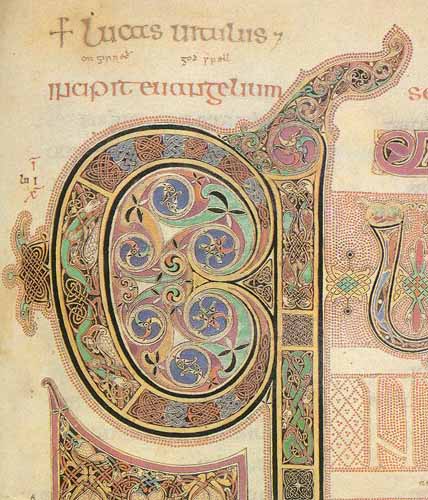(The following is a brief excerpt from my forthcoming Philippians commentary. ‘Enjoy!’)
JOY– THE ELIXIR OF FAITH, THEEFFERVESCENCE OF HOPE
Scholarshave often pondered the semantic range of the words chara and chairein andthere have been a variety of opinions about the meaning of these words.[1] Clearlythey are important in this discourse where they occur more (some 16 times) thanin any other Pauline letter, even the much longer ones. There is clearly some paradox about this’joy’. On the one hand external eventscan affect it. Paul speaks about how ifthe Philippians continued to stand firm and make progress in the faith thatthis would be a source of joy for Paul (4.11). These converts were capable of enhancing Paul’s joy, or as 2.2 wouldhave it–perfecting or making complete Paul’s joy. At the same time Paul has joy in spite of someof his circumstances, such as his suffering or house arrest.
The more one studies these wordsthe clearer it becomes Paul is not talking about mere happiness which certainlycan be taken away by suffering, in particular extreme suffering. One clue to unlocking this paradox is thatPaul says ‘joy’ is one of the fruit of the Spirit (Gal. 5.22), and indeed Paulplaces it only after love as one of the fruit of the Spirit. But if it is the fruit of the internalworking of the Spirit in the believer, then it is not something ‘the world’ cangive a person, nor can the ‘world’ take it away. It is not dependent on positive externalcircumstances and it may exist in spite of negative ones, but at the same time,some positive external circumstances can enhance it, and some negative ones puta damper on rejoicing–such as the loss of a loved one. One is called by Paul to rejoice in the Lord,not in one’s circumstances in any case (cf. Phil. 3.1; 4.4,10), and here hesimply follows the psalmist.[2]
G. Hawthorneoffers this insight: “for Paul, joy is more than a mood, or an emotion. Joy isan understanding of existence that encompasses both elation and depression, thatcan accept with creative submission events which bring delight or dismaybecause joy allows one to see beyond any particular event to the sovereign Lordwho stands above all events and ultimately has control over them.”[3] While joy may be more than an emotion orfeeling, it certainly involves the feelings, feelings of elation aboutsomething or someone. I do not thinkthat when Paul refers to joy he merely means quiet acceptance of God’s will,however hard that may be. For example, Icannot imagine Paul ‘rejoicing’ over the recent earthquake disaster in Haitiand all the carnage and wreckage and loss of life it entailed, but I canimagine Paul saying that God can bring something good out of that disaster,something to rejoice in, in spite of all the suffering, sorrow, disease, anddeath.[4] 2 Cor. 8.2 shows in any case that joy in themidst of affliction is a characteristic of the Macedonian churches (cf. 1Thess. 1.6-7; 5.16-18; Acts 16.34).
Chairein and its cognates appear somesixteen times in Philippians (as a noun (‘joy’) here and at 1.25; 2.2,29;4.1 and as a verb (including the compound sunchairein)
At 1.18;2.17,18,28;3.1;4.4,10 (multiple times in one versein four of these examples). This makes the absence of this language all themore notable throughout Phil. 3, a fact best explained by the focus and contentof Phil. 3. It is true that chara is linked etymologically with charis, so from a rhetorical point ofview there is some playing on the similar sounding words grace and joy inPaul’s letters. In fact in classicalGreek it is the Greek word for ‘rejoice’ or ‘be merry’ chairein which becomes the word for greeting in the later papyrusletters.
In Greekliterature and in the Greco-Roman world there is a long history to the use ofand even study of the meaning of this semantic field. So for example inAristotle ‘joy’ is the subject of philosophical reflection (Nic. Ethics 2.5,1105b19ff.), and closer to the Pauline usage we find this language used to refer tothe joy produced by a religious experience in a mystery cult, or the joyprompted by the appearance of a savior figure, a wunderkind who would rule theworld for the better (see Vergil’s Ecl. 4.48-52).[5]
There areof course plenty of examples of references to mundane joy in the OT (samah/simha for the verb and noun), forexample the rejoicing over food and drink (Ps. 104.14-15, or a wedding (Jer.25.10), but there is also joy expressed to God for divine deliverance (Exod.18.9; Ps. 33.1,21) and the gift of Torah (Neh. 8.10,12; Ps. 119.14), but themore one studies the post-exilic OT literature, the more joy is projected intothe future as something that is part of the eschatological hope (Is.35.10;51.11;65.17-19;Zech. 2.10;8.19; Joel 2.21), in fact joy is said tocharacterize the age of redemption (Is. 123-6;25.9;26.19;29.19;35.1-10;41.16;49.13; 51.3,11;52.8;55.12;61.7), and it isthese references from the latterprophets that are most important in the study of Paul because he believes theeschatological Spirit has now come filling the hearts of believers with manythings, including eschatological joy over their salvation. It is perhaps of some importance that at
Thevocabulary of joy appears some 50 times in the undisputed Paulines, making it acharacteristic of the Pauline letters. If we are to ask about the objective source of this joy it is surelyChrist, with the subjective means of joy being produced in the believer beingthe work of the Holy Spirit, the Spirit’s fruit in a Christian life. This brings us to Phil. 4.4-5 where, in anecho of a psalm,[7] thespatial nearness of God should prompt rejoicing. The reason then that the world can neithergive nor take away this joy is because it is a joy generated by the livingpresence of the Lord in the believer’s life, and ‘greater is he who is in us,than anything in the world’. At the sametime the Lord is the object of Christian joy as well as its source, and as Bockmuehlsuggests there may be a hint in this discourse of believers sharing in Christ’sjoy by imitating Paul and Christ.[8] Paulthen in Phil. 1.4 is talking about making petitions with eschatological hopeand confidence and excitement, knowing what God can do. That this is in hismind is shown clearly in Phil. 1.6. Joyis so characteristic of Paul’s vision of the Christian life that one can say “ajoyless Christian makes no more sense than a waterless ocean.”[9]
[1] See especiallyW.G. Morrice, Joy in the New Testament, (Grand Rapids: Eerdmans, 1985) and O. Michel,”Freude” in the Reallexikon furAntike und Christentum, (ed. T.Klausner et al. Stuttgart: Hiersmann, 1950ff. this particular volume 1972), pp.348-418 and H.Conzelmann, “chara“ TDNT Vol. 9 , pp. 359-76.
[2] On whichsee pp. below.
[3]Hawthorne, Philippians, p. 18.
[4] And hereis where it becomes evident that how we read Paul’s understanding of joy isdependent on whether we take a more Calvinistic approach to the matter, as does
[5] For muchof this I am following Reumann’s discussion in Philippians, pp. 104-06.
[6] See thediscussion in Bocmuehl, Philippians, p. 59.
[7] On whichsee pp. below.
[8]Bockmuehl, Philippians, p. 60.
[9]Flemming, Philippians, p.52.

